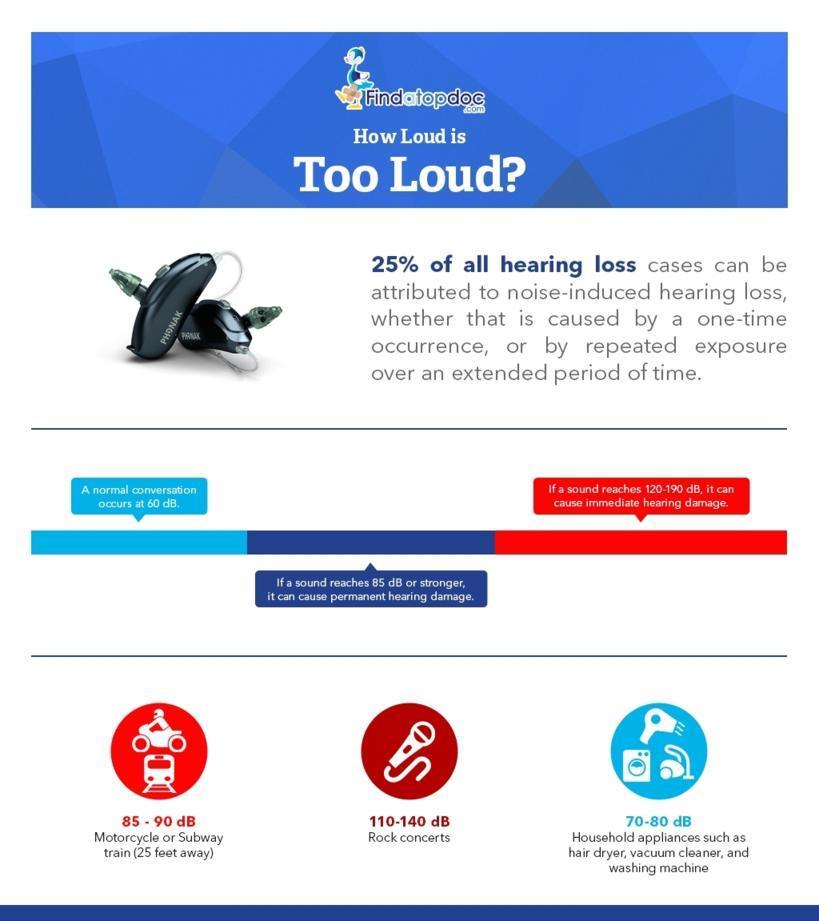
How many decibels is too loud?
We live in a noisy world, constantly surrounded by sounds: traffic noise, the sound of construction work being carried out on building sites, dogs barking, loud music, cell phones ringing – noise takes on many different forms. Since the way sounds are perceived depends on the specific preferences, mindsets and moods of each individual hearer, there is no fixed value for determining what we experience as noise. Yet as soon as a sound reaches a volume that irritates people or even causes damage to their health, we refer to it as noise.
The louder the sound, the more damage it can cause to your hearing, and the quicker this damage will occur. Sound is measured in units called decibels. Any sound at or above 85 decibels can damage your hearing.
Researchers have found that people who are exposed over long periods of time to noise levels at 85 decibels or higher are at a much greater risk for hearing loss. That’s why some workers are required to wear hearing protectors, such as earplugs or earmuffs, while they are on the job. Did you know that many devices that children use today have noise levels much higher than 85 decibels? For example, a mobile device at its highest volume is about 105 decibels. That's 100 times more intense than 85 decibels! Manufacturers are not required to limit the maximum sound output of music devices. Fortunately, many devices do have volume limiting controls, which allow you to set the maximum volume to a safe level.
- 70-80 dB: Household appliances such as hair dryer, vacuum cleaner, and washing machine
- 85-90 dB: Motorcycle or Subway train (25 feet away)
- 110-140 dB: Rock concerts
How loud is too loud
When our hearing is subjected to noisy environments, whether it occurs as a one-time loud explosion or over a longer period of time, it damages the delicate structures of our inner ear and causes permanent hearing loss. This is known as noise-induced hearing loss (NIHL) and while it’s not reversible, it is preventable. In order to protect your own hearing as well as advocate for others, you must first understand when noise is loud enough to harm your hearing.
How to protect your hearing?
- Lower the volume. Some music devices have the option for users to set volume control limits.
- Move away from the noise. Don’t sit/stand right in front of concert speakers.
- Wear hearing protectors, such as earplugs or earmuffs. If you find yourself without access to hearing protection, cover your ears with your hands.
- Have your hearing checked regularly by a hearing care professional or specialist physician.
- To enable recovery, deliberately take acoustic breaks and switch off all sources of noise (radio, TV, etc.). This is particularly important after going to a disco, or working in a noisy environment. – In these situations the ears should be given at least 10 hours’ rest.
Your ears are delicate instruments. Loud sounds, from music to jackhammers, can harm your ears and cause hearing loss. So, be respectful to your ears and take good care of them!


